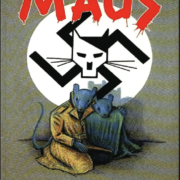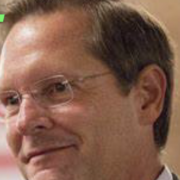Continuing the recent spate of conservative book-banning initiatives, The Mcminn County School board just voted to ban the Pulitzer Prize-winning graphic novel “MAUS” by Art Spiegelman from all of its schools, citing the inclusion of words like “God Damn” and “naked pictures” (illustrations) of women.
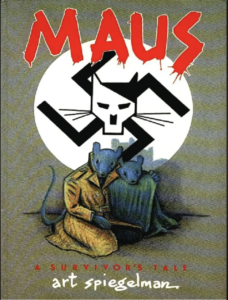
There is no video available of the meeting, but here are the MINUTES in their entirety.
We called the board and asked if the book being about the Holocaust had anything to do with the decision, and were told it did not. Still, the climate of conservative censorship, the passage of history-whitewashing laws that threaten fines to teachers who teach the truth, and the push towards the banning of books across the state by groups like “Moms for Liberty” makes it fair to question the timing.
The Vote was 10-0, with Yes votes from: Denise Cunningham, Bill Irvin, Quinten Howard, Sharon Brown, Mike Cochran, Mike Lowry, Donna Casteel, Jonathan Pierce, Tony Allman, Rob Shamblin.
Much of the discussion revolved around how books are selected for the curriculum, with finger-pointing at state standards which have become a popular punching bag among conservatives lately. They also discussed the possibility of redacting the words they found objectionable, but decided it would be better to ban the graphic novel altogether.
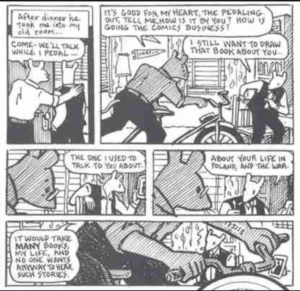
Let’s also remember that in East Tennessee we recently saw Coach Hawn fired after 17 years for leading a discussion about White Privilege, which is as real as oxygen. And the Tennessee state legislature recently passed their history-whitewashing “anti-CRT ban” which actually threatens to impose massive fines on teachers/districts that teach the truth about our history, and race.
Regardless of why this decision was made, we’re in a climate where a sustained attack is being made on our schools, our teachers, and the truth. The anti-Critical Race Theory furor ginned up by Republican think tanks for political gain morphed into an excuse for right wing folks to try to cancel diversity, equity and inclusion initiatives, and things they don’t agree with in general — and now Conservative book-banning is really having a moment.
We have to teach the truth about our history. Or it will be repeated.
Below is what some of the various board members had to say in the meeting (contact info here):
Tony Allman, School Board Member: “Why does the educational system promote this kind of stuff, it is not wise or healthy… I am not denying it was horrible, brutal, and cruel. It’s like when you’re watching tv and a cuss word or nude scene comes on it would be the same movie without it. Well, this would be the same book without it… If I had a child in the eighth grade, this ain’t happening. If I had to move him out and homeschool him or put him somewhere else, this is not happening.”
Jonathan Pierce, School Board Member: “My objection, and I apologize to everyone sitting here, is that my standards matter- and I am probably the biggest sinner and crudest person in this room, can I lay that in front of a child and say read it, or this is part of your reading assignment?”
Mike Cochran, School Board Member: “I went to school here thirteen years. I learned math, English, Reading and History. I never had a book with a naked picture in it, never had one with foul language. In third grade I had one of my classmates come up to me and say hey what’s this word? I sounded it out and it was “damn,” and I was real proud of myself because I sounded it out. She ran straight to the teacher and told her I was cussing. Besides that one book which I think she brought from home, now I’ve seen a cuss word in a textbook at school. So, this idea that we have to have this kind of material in the class in order to teach history, I don’t buy it. “
A few in the room came to the book’s defense. We’re told many teachers in the county are upset about the decision, some seemed in favor of just removing the objectionable words:
Julie Goodin, Instructional Supervisor: “I can talk of the history, I was a history teacher and there is nothing pretty about the Holocaust and for me this was a great way to depict a horrific time in history. Mr. Spiegelman did his very best to depict his mother passing away and we are almost 80 years away. It’s hard for this generation, these kids don’t even know 9/11, they were not even born. For me this was his way to convey the message. Are the words objectionable? Yes, there is no one that thinks they aren’t but by taking away the first part, it’s not changing the meaning of what he is trying to portray and copyright… I have an eighth grader and even if you did pull this book I would want him to read it because we have to teach our kids. Are these words ok? No, not at all that is not acceptable, but the problem is that we are 80 years removed from the Holocaust itself. I just think this is a grave starting point for our teachers. I am very passionate about history, and I would hate to rob our kids of this opportunity. Are we going to be teaching these words outside of this book as vocabulary words? No, you know me better than that Tony Allman. ”
Melasawn Knights, Federal Programs Supervisor: “I think any time you are teaching something from history, people did hang from trees, people did commit suicide and people were killed, over six million were murdered. I think the author is portraying that because it is a true story about his father that lived through that. He is trying to portray that the best he can with the language that he chooses that would relate to that time, maybe to help people who haven’t been in that aspect in time to actually relate to the horrors of it. Is the language objectionable? Sure. I think that is how he uses that language to portray that… We are trying our best to redact the best we can and follow the law and that is what we felt like we have done to address the concerns of that language, the best we could. We think it is a valuable book and most of the supervisors here have read it.”
Steven Brady, Instructional Supervisor: “Every lesson we teach gives us a chance to make a change for the better for our students. When we teach habits of character, we are teaching our students how to be better people. There was a time where that happened every day at home, but when we think about what’s going on now and in the lives our students live in, many of them live in broken homes when they are at one house one day and another house the next. The list goes on and on of the things they have to deal with. Whether we realize it or not, school is the most stable thing in many of our students lives. What students see and hear where they live, may not be appropriate in some settings and we have a chance with every lesson to change what our students see is ok. We get a chance to kind of influence their ethics, their morals, their upbringing. I appreciate the stand that you all are taking to assure the public that we care about our kids, and we believe it’s important to teach our students the difference between right and wrong and help them be ethical people with compassion and morals with respect for others. We are not promoting the use of these words, if anything we are promoting that these words are inappropriate and it’s best that we not use them. It’s inappropriate for school, for our conversation here and you may hear that at home, you may see that on tv, but we do not promote that. There are many lessons that can be learned through this book about how we treat others, how we speak, things that we say, how we act and how to persevere. I just wanted you to get an idea of why these lessons are structured like they are and how this text is just surrounded by excerpts and articles and the things we do to build that background knowledge and the opportunity we have to make a difference in our students lives.”
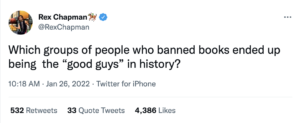
WATCH: “CENSORSHIP IS NEVER THE ANSWER.”

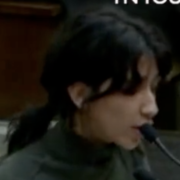

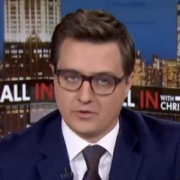
 with ACTUAL/alleged GOP child sex abusers (Hastert, Moore, Gaetz, etc)— rips the “BAD FAITH” framing of Dems as “groomers”
with ACTUAL/alleged GOP child sex abusers (Hastert, Moore, Gaetz, etc)— rips the “BAD FAITH” framing of Dems as “groomers” 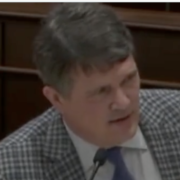
 WATCH: “You’re eliminating the school boards’ power.”
WATCH: “You’re eliminating the school boards’ power.”  (and ran from us
(and ran from us  )
) 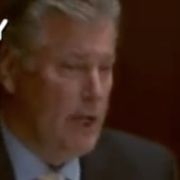
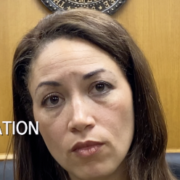
 through this formula as you flood TN with charter schools?”
through this formula as you flood TN with charter schools?” 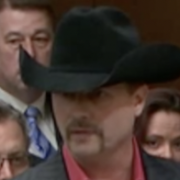
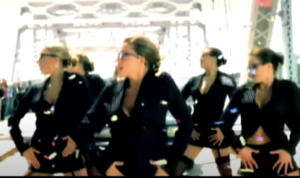
 )
) 
 Previously, Governor Lee did all he could to get private school vouchers passed, even reportedly offering military promotions as bribes to squeak it through the house. Unfortunately for him, the courts held up his unconstitutional plan (SO FAR).Now, instead of steering public dollars to private schools, Lee has begun a partnership with HILLSDALE COLLEGE, a private Christian school in MICHIGAN with close ties to BETSY DEVOS led by Larry Arnn, who Trump appointed to lead his history-whitewashing “1776 Commission” in response to the 1619 Project.
Previously, Governor Lee did all he could to get private school vouchers passed, even reportedly offering military promotions as bribes to squeak it through the house. Unfortunately for him, the courts held up his unconstitutional plan (SO FAR).Now, instead of steering public dollars to private schools, Lee has begun a partnership with HILLSDALE COLLEGE, a private Christian school in MICHIGAN with close ties to BETSY DEVOS led by Larry Arnn, who Trump appointed to lead his history-whitewashing “1776 Commission” in response to the 1619 Project.




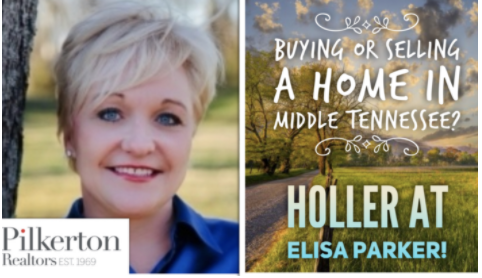
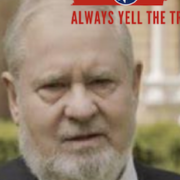
 LISTEN: “
LISTEN: “
 history” (according to who?
history” (according to who?  ) — calling colleges “centers for anti-American thought” (because they teach the truth).
) — calling colleges “centers for anti-American thought” (because they teach the truth).